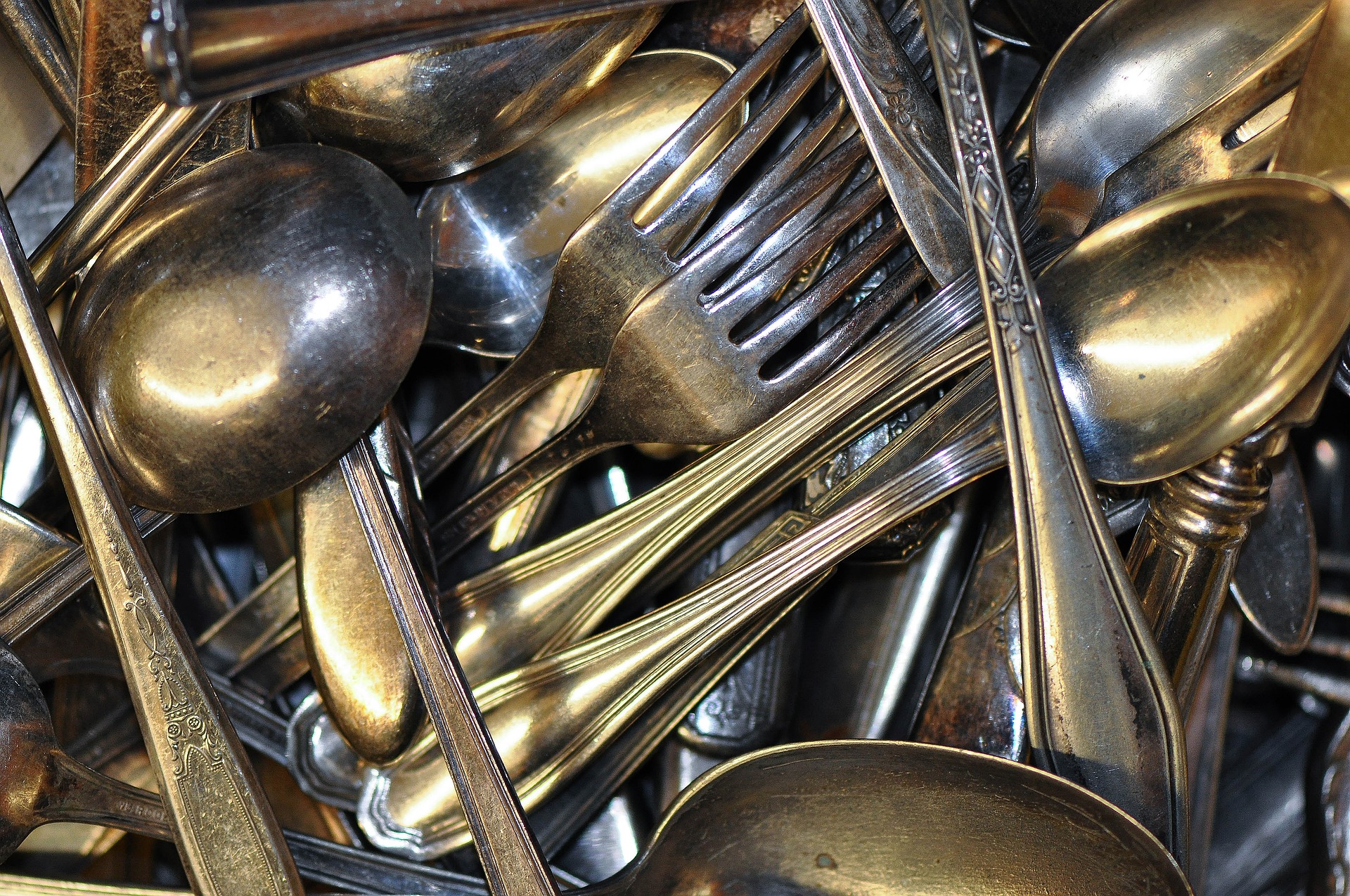
• Found that silver cutlery can make certain types of food taste unpleasant
• Stainless steel used in daily diets in most households performed better than silver in a series of taste tests
• Gold makes food the most delicious because it is the most inert material
Because despite the centuries-old tradition, scientists still say that exquisite cutlery is made of the wrong materials.
They found that silver knives, forks, and spoons can make certain types of food taste unpleasant.
Stainless steel, which is used in daily diets in most households, performs better than silver in a series of taste tests.
But scientists have discovered that for the best cooking experience, cutlery should be made of gold.
Dr Zoe Laughlin, of University College London’s Institute of Making, tested spoons made of seven materials - gold, silver, stainless steel, zinc, copper, tin and chrome.
A group of 50 volunteers were asked to suck each spoon and evaluate its taste.
Then repeat the test with different foods to see how the metal combines with sweet, salty, and sour tastes.
Dr. Laughlin said: "Gold is the most delicious. It is the most inert material, so it does not really affect food. Whether it is used alone or with food, gold performs best.
"It has no metallic taste at all. This is what the diet should be-you just taste the taste of the food and nothing else. She added: "Silver is not very tasty-it is not pleasant at all, it is very metallic. It also reacts badly with the acid in the fruit and the sulfur in the egg.
"Stainless steel is very good-of all the materials we have seen, stainless steel is the second best cutlery, but you haven’t lived until you have eaten with gold."
Her team also found that copper spoons and zinc spoons work well with sweets.
Although volunteers reported that the metal itself tasted bitter, when combined with the sugary taste in the mouth, this contrast would accentuate the sweetness of the food.
This research was announced yesterday during the launch of a new exhibition on human appetite at the Science Museum in London, and it complements the growing theor-y that it is not just the taste of food that affects the way we experience taste.
The Cravings exhibition will last for one year, exploring how the "reward" circuit that determines flavor in the brain is changed by various external influences.
Professor Charles Spencer of Oxford University who contributed to the exhibition said: "Our perception of food is affected by the sensory characteristics of the food itself and all external factors surrounding the experience."
His research found that heavier glasses will make gin and tonics taste better, while fine tablecloths will improve the flavor of meals.
He also found that plastic blue spoons make food taste saltier, white spoons make food taste creamier, and black spoons make food taste less sweet.
Professor Spencer believes that the reason is that our brain processes the information we see, hear and smell before the food reaches our mouth.
He said: "My goal is to change the taste of food without having to change the ingredients, but by deceiving all our senses."
Celebrity chef Heston Blumenthal also participated in the exhibition. He said: "Think of the most memorable meal you have ever eaten. It's not just the food you remember.
"Eating is a multi-sensory experience that can shape your appetite for life, and this is what the wonderful Cravings exhibition explores well."
Dr. Laughlin is working with a major airline to redesign their cutlery and is now exploring how the shape of the cutlery can also affect the taste.
The results of her preliminary research showed that the basic oval spoon shape is good-but for best results, everyone should have a slightly different shape of cutlery.
"In the future, you may walk into a store, scan the inside of your mouth with a 3D camera, and they will make a set of cutlery for you.
"It has to do with the size and length of the head, the curve of the spoon-all of these will affect the way you experience the taste, it all depends on the individual."
